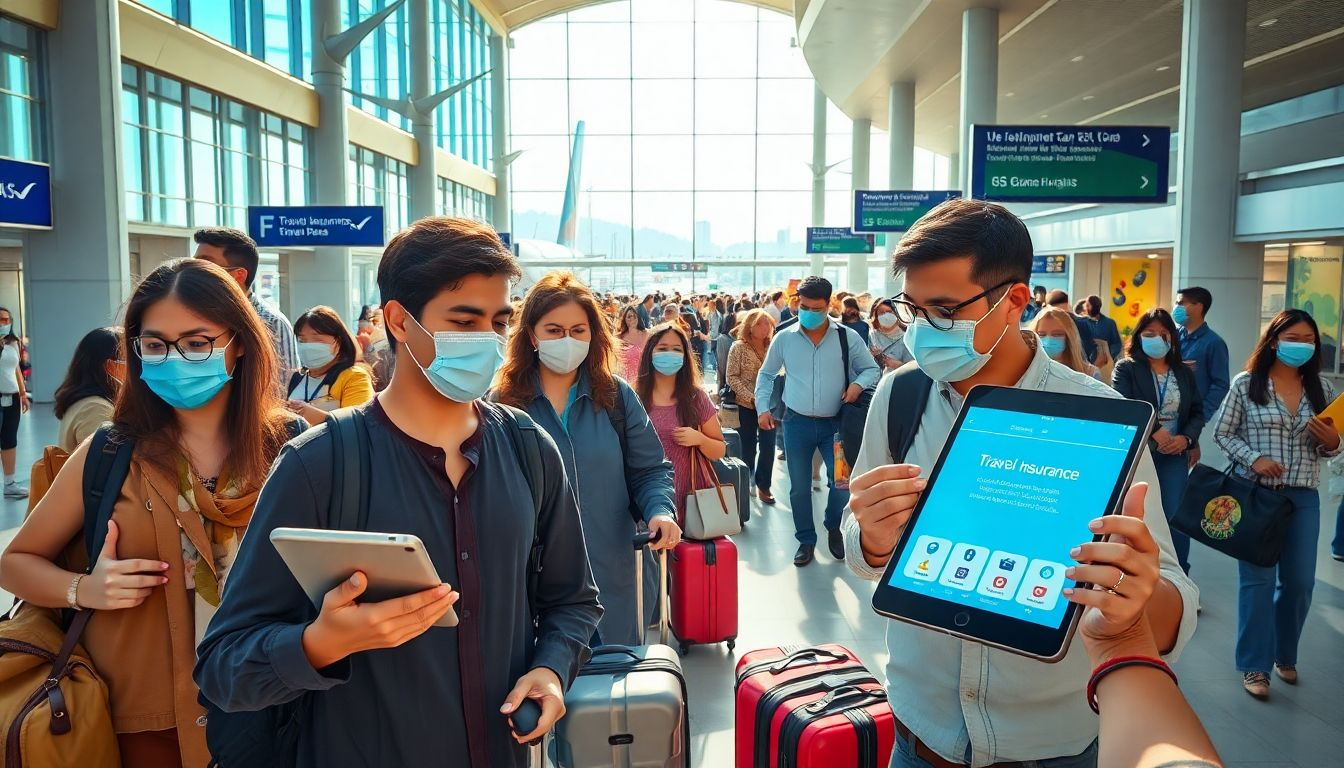Is Travel Insurance Necessary in the Post-COVID World?
Travel in the post-COVID era—should your insurance strategies follow? This article discusses whether travel insurance remains necessary in the post-pandemic era, for medical emergencies, cancellations, and changing entry restrictions. Get to-the-point answers on when it's worth it, what to look for, and how to remain covered on your next vacation.

Introduction
Travel behavior shifted significantly after COVID-19 struck. Everyone became more cautious and health-conscious. Many travelers hesitate to book vacations now. With new travel regulations and health issues, it's wise to wonder: Do I still require travel insurance? This article discusses whether travel insurance is worth it now. We shall examine contemporary risks and how insurance can help safeguard you in these uncertain times.
The Evolution of Travel Risks After COVID
Global Travel Dynamics Shift
Travel has been quite different since the pandemic. Nations established regulations that complicate international travel. Flights can be delayed or canceled more frequently. Travelers must plan ahead now. Some places demand evidence of vaccines or negative tests. Others have stringent quarantine policies. Planning a trip today is much different than pre-COVID.
New and Current Travel Risks
Health issues remain high for most travelers. Unpredictable quarantine demands can spoil a trip. In case you get ill overseas, emergency medical services may be costly. Besides health problems, trip cancellations or interruptions now occur more frequently. Travel bans can arise at any time, making travelers have to alter plans at the last minute.
Expert Insights
Travel experts note that these risks now require extra attention. "The pandemic alerted travelers to emerging risks," a travel consultant explains. Statistics reveal that travel cancellations have doubled since 2020. Travelers experience surprise expenses caused by unexpected changes or crises. Being ready is now more necessary than ever.
Advantages of Travel Insurance After the Pandemic
Protection against Health Emergencies and COVID-19-Related Bills
Good travel insurance covers medical emergencies, including COVID-19. If you catch the virus abroad, it can pay for hospital stays and tests. Some plans also cover COVID-19 related quarantine costs. Many travelers filed claims for tests or treatment while traveling during the pandemic.
Flexibility with Trip Cancellations and Interruptions
Modern insurance policies usually have pandemic-related change coverage. If your travel is canceled because new rules are put into place, your cost will be reimbursed by insurance. Real-life examples demonstrate travelers who are shielded from losing thousands of dollars due to unexpected cancellations. That peace of mind is well worth the added step.
Financial Peace of Mind
Without coverage, going to the hospital or trip cancellation can add to your financial burden. Think about paying for costly hospital visits or forfeiting non-refundable reservations. Selecting the proper coverage will shield you from these financial shocks. Check for policies that specifically cover pandemic-related concerns to be safeguarded.
Determining If Travel Insurance Is Appropriate for Your Travel Arrangements
Influences That Affect the Use of Travel Insurance
Numerous factors influence whether you require insurance. Consider where you're traveling to and the state of COVID-19 there. The reason you're going, too, is important: for leisure or business? Your age or state of health may also be important. Older travelers or those with certain health issues may desire additional protection.
When Travel Insurance Is Highly Recommended
Visit places with high risks of COVID-19? Insurance better be taken. If the trip is expensive and difficult to reschedule, insurance is sensible. Visiting large events or group tours? Insurance is convenient if plans go awry. Non-refundable bookings also make insurance a good option.
Circumstances Where Foregoing Travel Insurance May Be Excusable
Short, domestic journeys with low risks might not be necessary to insure. If last-minute bookings are easy to cancel, don't bother. And if all of your bookings are refundable, you can let go. Use your discretion depending on your travel plans and risk tolerance.
How to Choose the Best Travel Insurance for the Post-COVID Era
Most Important Coverages to Look Out For
Ensure the plan includes COVID-19 tests and overseas medical treatment. Search for trip cancellation and interruption coverage. 24/7 emergency services are important, as well. These add-ons provide you with speedy assistance when you need it the most.
Comparing Plans and Providers
Verify policy limits and what is not covered. Look up customer support reviews. Note fine print regarding pandemic coverage. Not all policies are created equal, so shopping around saves money and aggravation.
Expert Recommendations
Travel insurance experts recommend selecting plans that adjust to the present scenario. Search for flexible cancellation terms and transparent COVID-19 coverage. It's advisable to select a plan from a reliable provider with good customer support.
Practical Travel Tips in the Post-Pandemic World
- Stay current on travel advisories to your destination.
- Purchase insurance ahead of time to be fully covered.
- Have all your travel documents, receipts, and health records in order.
- Stay current with news on COVID-19 rules and insurance policy changes.
Conclusion
Although traveling seems safer than it was at the peak of COVID-19, dangers are still there. Medical emergencies, cancellations, and restrictions can arise at any time. Travel insurance offers peace of mind and protects your finances. Take time to assess your plans, destination, and health. The right insurance can be a lifesaver in today’s uncertain travel world. Remember, in the post-COVID era, smart travelers stay protected with proper coverage. Planning well today means enjoying peace of mind tomorrow.

Your comments